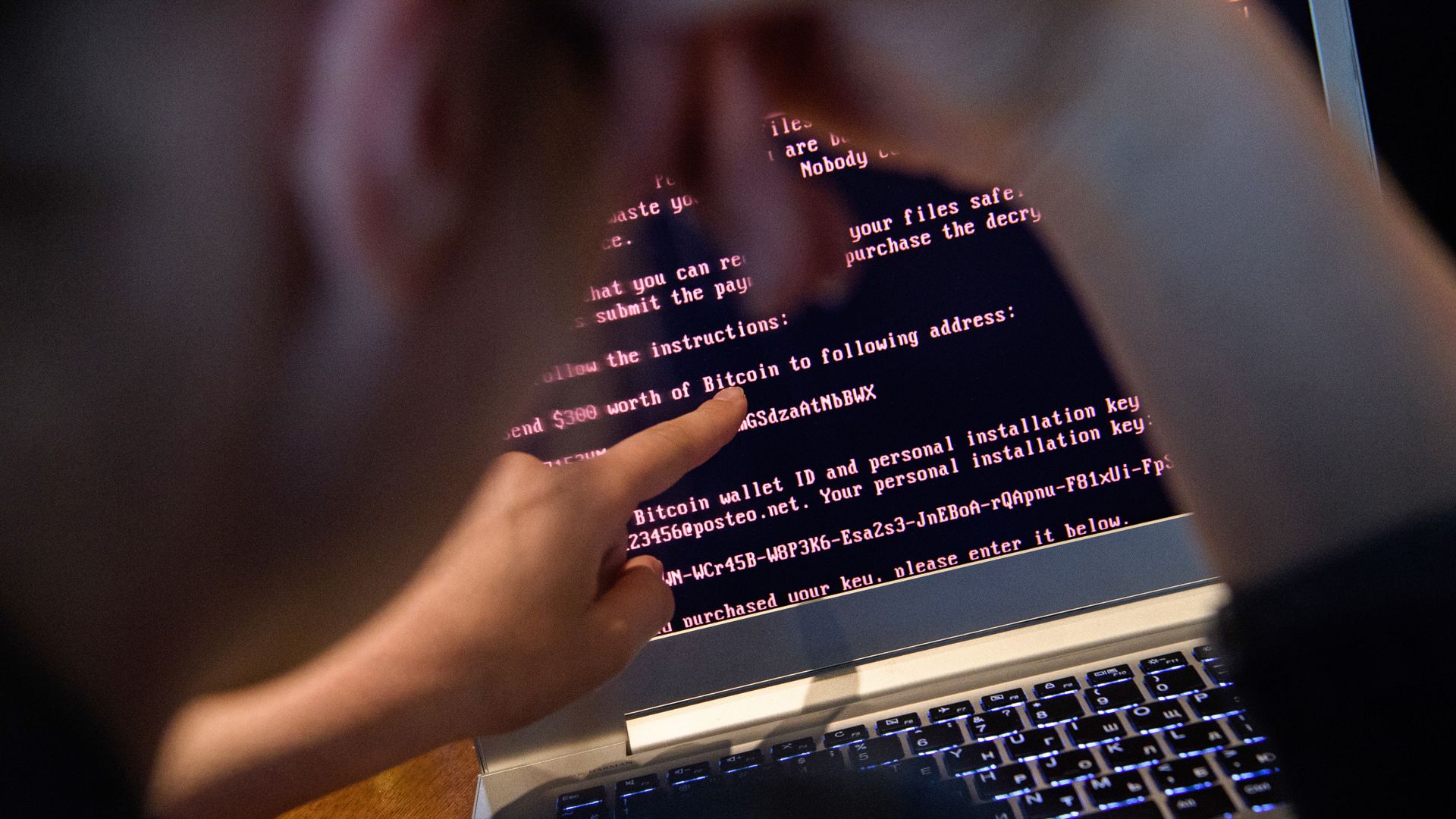Mar 22, 2018
Hackers hit software supply chains more in 2017 than prior two years combined
Add Axios as your preferred source to
see more of our stories on Google.

A computer user points at the word "Bitcoin" in ransom message associated with the NotPetya malware. Photo: Donat Sorokin\TASS via Getty Images.
